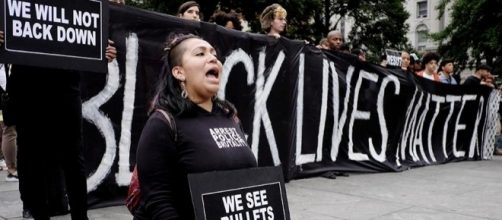Documents exclusively obtained by the Guardian show how the New York Police Department spied on Black Lives Matter activists. The surveillance was carried out amid the protests surrounding the death of Eric Garner.
The spying carried out by the NYPD involved undercover officers posing as activists, but also intercepting text messages and filming the protests. Lawyers are questioning the motives of the NYPD.
Emails reveal police surveillance
The documents which were obtained largely consist of emails between undercover police officers and other officials.
A freedom of information lawsuit, led by a New York law firm, enabled the release of these documents. The lawyers in this case, noted that the information obtained raises serious questions about the NYPD and their compliance with city rules. David Thompson, one of the attorneys in the case, said that there is no evidence of a crime being committed by the protesters, but that the police carried on with undercover activities "as if they were al-Qaida".
Undercover officers successfully posed as protesters, even within small groups. For example, an email shows that one of the police officers was part of a group of seven protesters. They also gained access to information regarding demonstrations and locations of individual activists.
In addition, some police members shared pictures of group texts. This means that some officers gained considerable trust among the movement.
Black Lives Matter activists react
Elsa Waithe, one of the organizers of Black Lives Matter, told the Guardian that the activists compromised themselves. Regarding pictures of private text messages, Waithe said: "That text loop was definitely just for organizers, I don’t know how that got out. Someone had to have told someone how to get on it, probably trusting someone they had seen a few times in good faith."
Another activist, Keegan Stephan, noted that an officer would have to develop a friendship with protesters to gain access to small groups. Joseph Giacalone, a retired NYPD detective sergeant, claimed that the undercover surveillance probably went on for quite some time in order for the police to gain such intimate access.
Michael Price, who works as legal counsel, noted that it is hard to conclude whether the New York police crossed the line. However, police are prohibited from taking pictures and videos of public events unless there is a case of unlawful activity. From the emails obtained, there appears to be no evidence for any unlawful activity by activists, but quite the contrary - the protesters were often described as peaceful and orderly.

